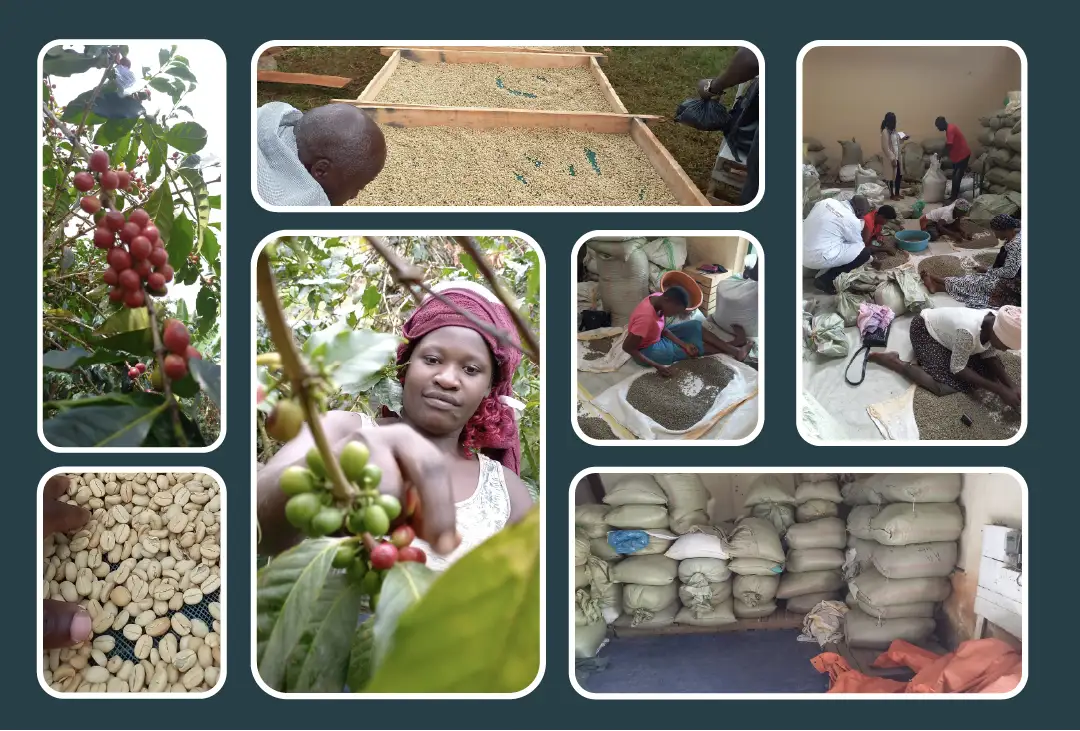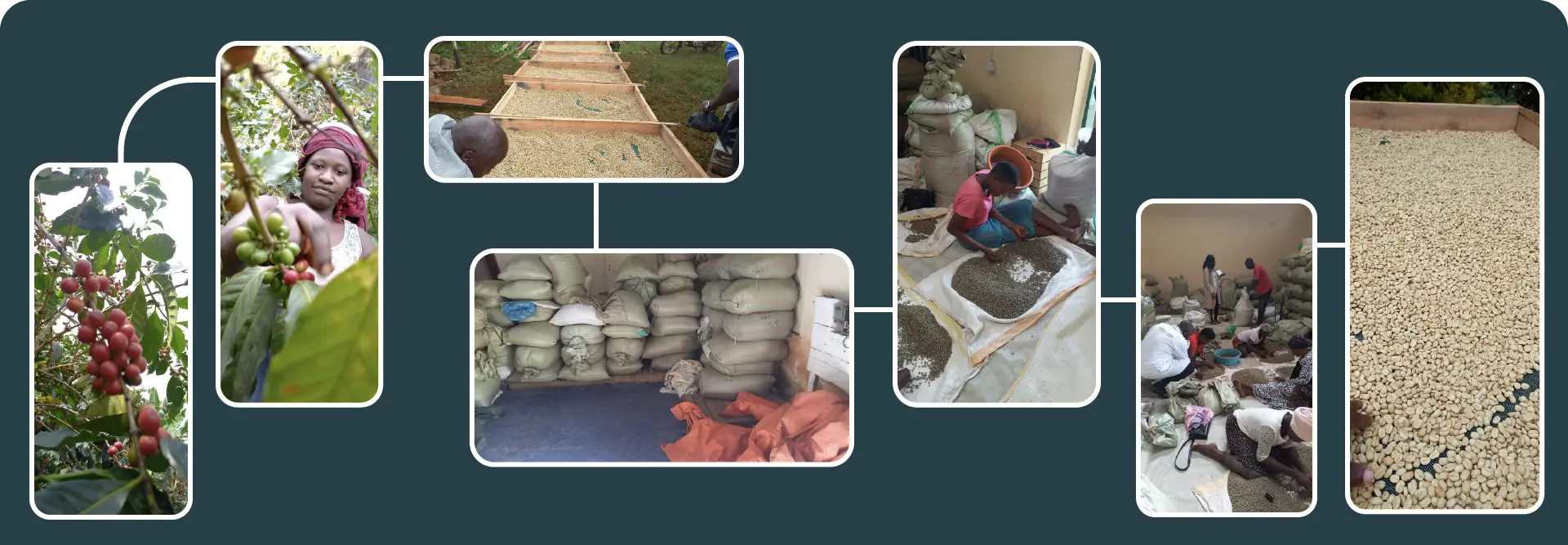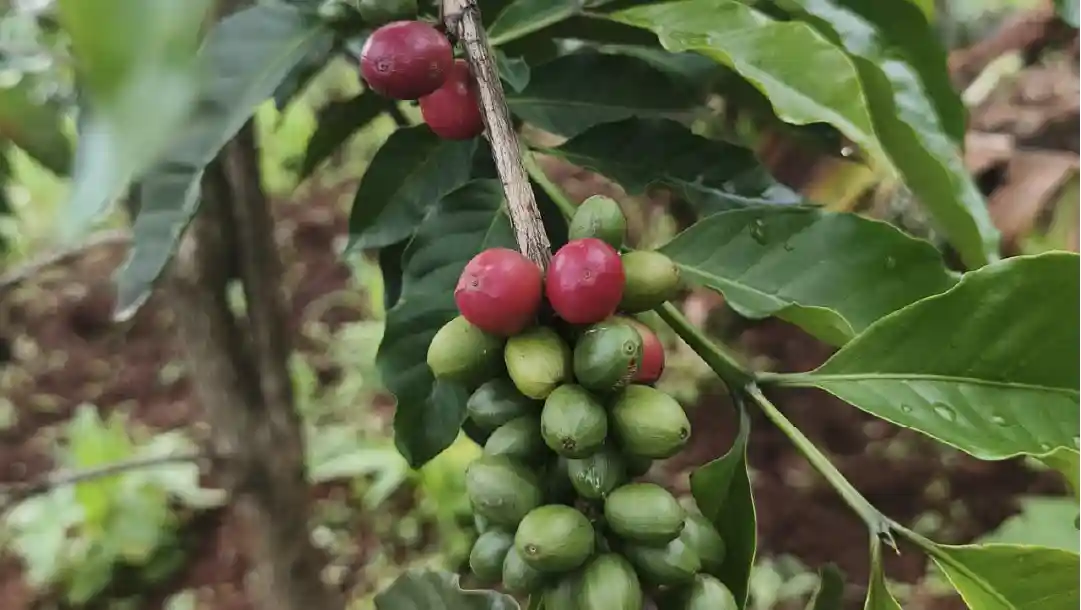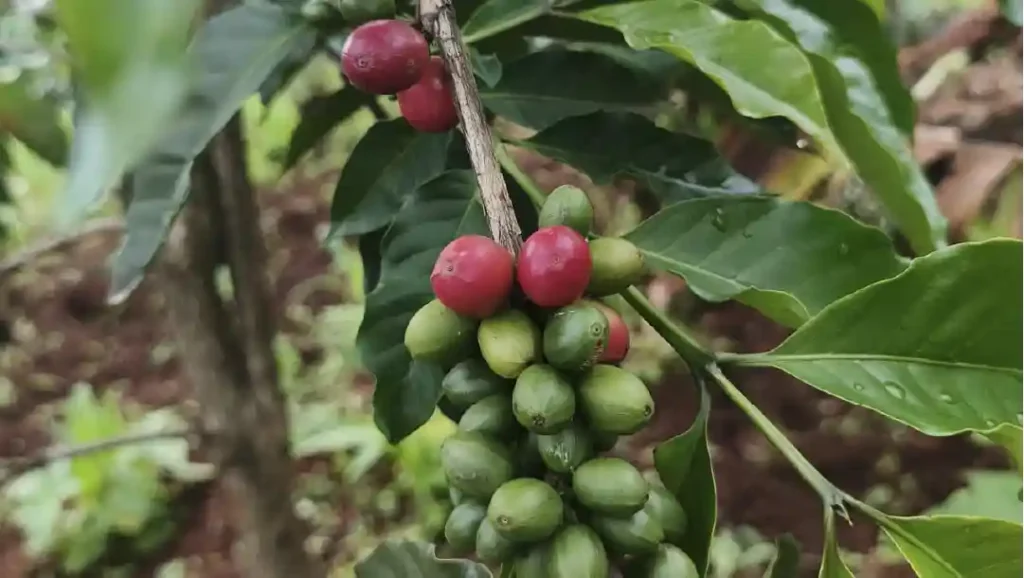About Us
Home > Afroma House
About Us
Home > Afroma House
Afroma House Coffee
Afroma House Coffee is a Ugandan Social Impact Business selling Ugandan Specialty Coffee on both the Ugandan and United States Market, and commits 2.5% of its profits to Ugandan Women Coffee farmers it procures its coffee from and another 2.5% of its profits to African American women empowerment initiatives.
Uganda produces some of the best quality coffee on the International Market. The Country is among the few Countries with Indigenous Coffee.
Afroma House Coffee’s Quality and Origin
Afroma House Coffee is renowned internationally for its superior quality.
Uganda is one of the few Countries with indigenous coffee and its coffee is grown naturally without the use of artificial additives.
The Arabica coffee produced by Afroma House Coffee is cultivated at 7,500 feet Altitude and on ancient volcanic soil, specifically from decayed lava that has been present for over a thousand years on the slopes of Mountain Elgon. This unique geological feature significantly contributes to the coffee’s distinct flavor profile and remarkable aroma.
In addition to Arabica, Afroma also produces Robusta coffee, which is grown in the Nile Valley, one of the most fertile regions in the world. The robust flavor of this coffee variety is influenced by the diverse types of silt deposited by various water bodies flowing into the Nile Valley, enhancing its unique taste.
Uganda has one of the biggest acreages of organic land in the World and most of its coffee is grown by poor small-scale farmers who do not afford the cost of artificial additives.
Afroma House Coffee Quality Certification and Ethical Practices
Afroma House Coffee’s quality is validated by the Uganda National Bureau of Standards. The company sources its coffee exclusively from farmers who prioritize environmental sustainability in their production methods. Additionally, Afroma House Coffee has a robust policy that prohibits the use of child labor in its coffee production processes
Sourcing and Quality Control
Afroma House Coffee sources its beans from farmers who adhere strictly to international standards throughout all stages of coffee production, including growing, harvesting, drying, and storage. To ensure high quality, Afroma House Coffee employs handpicking methods during harvest.
The roasting and packaging processes take place at CURAD, a state-of-the-art facility established to support Ugandan coffee exporters in meeting high-quality market standards. This facility plays a crucial role in ensuring that Afroma House Coffee maintains its reputation for excellence.
CSR/Social Impact Component
By purchasing Afroma House Coffee, you’re directly supporting the livelihoods of Ugandan women coffee farmers and contributing to the economic empowerment of underprivileged communities in the US. Our co-founder, Kikomeko Muhammad, a Howard University alumnus and social justice advocate, understands the unique challenges African women face in securing sustainable livelihoods. Raised in Africa by a single, hardworking mother, Kikomeko’s experience in designing and implementing refugee women’s livelihood support programs has given him a profound appreciation for the resilience and determination of African women.
We dedicate 2.5% of our profits to support women coffee farmers’ economic well-being, enabling them to access organic fertilizers and boost their coffee yields. This initiative has improved the quality of our coffee and enhanced the livelihoods of our women suppliers. We’ve also partnered with Onyango and Company Advocates, a leading Ugandan law firm, to provide free legal support to women coffee farmers unfairly evicted or threatened with eviction from their matrimonial coffee gardens.
We appreciate our coffee buyers and dedicate another 2.5% of our profits to underprivileged communities in the US. Co-founder Jahmal Sands, raised in Washington D.C., understands the disproportionate suffering of African American women. We’re committed to dedicating 2.5% of our profits to supporting African American Women economic empowerment initiatives.
By choosing Afroma House Coffee, you’re not only enjoying high-quality coffee but also contributing to the economic empowerment and well-being of both Ugandan women coffee farmers and African American women Communities. Your support makes a tangible difference in their lives.

The Team
The Afroma House team is made up of skilled individuals who share a deep respect for quality and craftsmanship. Together, we oversee every step of the process; from sourcing and roasting to packaging, ensuring each cup embodies the purity, care, and excellence that define our brand.

Kikomeko Muhammad
Co-Founder Afroma House Chief Executive Officer – The Gold Nile (Africa)
Kikomeko Muhammad
Chief Executive Officer
Kikomeko Muhammad serves as the Co-founder and Chief Executive Officer of Gold (Africa) Nile, which trades as Afroma House Coffee.
Kikomeko is a Ugandan alumnus of Howard University School of Law and is a partner at KM Advocates & Associates, a Ugandan law firm. His firm collaborates with the United Nations High Commissioner for Refugees as part of the Urban Working Group and works alongside the Government of Uganda under the Comprehensive Refugee Response Frame Work.
Kikomeko’s experience in designing and implementing livelihood enhancement projects for women refugees and Ugandan women in refugee hosting – communities has given him a profound understanding of the unique challenges African Women face in securing sustainable livelihoods.
This insight inspired him to found Afroma House Coffee, with a mission to empower women at the base of the economic pyramid, enabling them to achieve self-sustenance and economic stability

Jahmal Sands
Co-Founder Afroma House Chief Operating Officer – The Gold Nile (Africa)
Jahmal Sands
Co Founder of Afroma House Coffee
Jahmal Sands is the Co-Founder of Afroma House Coffee and Chief Operating Officer of the Gold Nile (Africa) LLC.
With over 15 years of experience, he has provided technical and operational leadership in both government and international contexts, including roles at USAID and Coca-Cola. Additionally, he co-founded Entuma, a firm that imports African textiles and handmade goods to the United States. He is an alumnus of both Hampton University and Columbia University.

Zaituni Nabbosa
Chief Financial Officer
Zayituni Nabbosa
Chief Financial Officer
Zayituni Nabbosa is the Chief Financial Officer of the Company.
Zayituni manages the Business funds, and most importantly, responsible for remitting the 10 % of the profits to Congolese Refugee Single mothers under the People for Peace and Defence of Rights (PPDR) a Congolese Refugee local led Organization in Uganda.

Nakanyike Faridah
Quality Control Officer
Irene Salama
Quality Control Officer
Irene Salama is a Congolese Woman Refugee hosted by the Government of Uganda. She is a member of People for Peace and Defence of Rights (PPDR) a Congolese Refugee local led Organization in Uganda.
Irene is the Company’s Quality Control Officer responsible for overseeing the strict adherence to standards at the different levels of Value chains.

Dorcas Esala
Supply Chain Cordinator
Dorcas Esala
Supply Chain Cordinator
Dorcus Esala is a Congolese Woman Refugee hosted by the Government of Uganda. She is a member of People for Peace and Defence of Rights (PPDR) a Congolese Refugee local led Organization in Uganda.
Dorcus handles the Company’s coffee supply chain.

Nayab Muhammad Kikomeko
Volunteer
From Garden to Cup

From Garden to Cup


Where Coffee is sourced
Afroma House Coffee is grown by small scale women farmers who cultivate Arabica coffee at high altitudes, between 5,600 and 7,500 feet, on decayed volcanic soils without the use of artificial additives.
The primary varieties grown are Nyasaland, SL 14, and SL 28
Coffee growing
Coffee planting is carried out manually with a hoe to ensure attention to detail. Coffee farm labor is only provided by adults and farmers very keen on prioritizing environmental sustainability. A lot of attention is given to quality control measures during the planting and growing of Coffee in order to ensure Specialty-grade Coffee known for its distinct flavor profiles, nuanced acidity, and rich aromas.
Harvesting
During Harvesting, Coffee is strictly harvested by selective handpicking. Only red ripe cherries are harvested to ensure a high-quality product.
Primary processing
After harvesting, the cherries are floated in buckets or drums using clean, natural stream water to separate defective or unripe beans. The ripe cherries are then pulped to remove the outer skin and pulp. Next, they're fermented for approximately 48 hours to break down the mucilage, followed by washing with clean stream water to remove any remaining pulp and mucilage. Finally, the cherries are dried on raised beds to a moisture content of 12.5%, ensuring optimal quality and flavor preservation.
Storing
The harvested coffee is packed in gurney bags and stored on wood pallets inside farmers’ home stores.
Our Partner, Stephen, a Specialty Coffee Production expert works closely with the women farmers during the coffee growing, harvesting, storage and drying in order to ensure specialty-grade Coffee production.
Secondary Processing
Dried Coffee is collected from women farmers and delivered to Ubora Specialty Crops Facility for hulling and grading. After hulling and grading a team of women at the facility select any defective beans from the processed green Coffee beans to ensure only top-quality beans pass for roasting.
Roasting
Top-grade Coffee is roasted and packaged at CURAD in Kabanyoro.
Leave a Tip
Leave a Tip
Your tip directly impacts Ugandan women coffee farmers, providing organic fertilizers to boost yields and quality, leading to better incomes and living standards.
It also offers legal support to women coffee farmers facing eviction from matrimonial farmland, securing their tenure.
Every contribution creates lasting change. Thank you for your generosity and support.

Partnerships
PPDR (People for Peace and Defense of Rights)
CURAD (Consortium for Enhancing University Responsiveness to Agribusiness Development)


Partnerships
PPDR (People for Peace and Defense of Rights)
CURAD (Consortium for Enhancing University Responsiveness to Agribusiness Development)
Afroma House Coffee’s Quality and Origin
Afroma House Coffee is renowned internationally for its superior quality.
Uganda is one of the few Countries with indigenous coffee and its coffee is grown naturally without the use of artificial additives.
The Arabica coffee produced by Afroma House Coffee is cultivated at 7,500 feet Altitude and on ancient volcanic soil, specifically from decayed lava that has been present for over a thousand years on the slopes of Mountain Elgon. This unique geological feature significantly contributes to the coffee’s distinct flavor profile and remarkable aroma.
In addition to Arabica, Afroma also produces Robusta coffee, which is grown in the Nile Valley, one of the most fertile regions in the world. The robust flavor of this coffee variety is influenced by the diverse types of silt deposited by various water bodies flowing into the Nile Valley, enhancing its unique taste.
Uganda has one of the biggest acreages of organic land in the World and most of its coffee is grown by poor small-scale farmers who do not afford the cost of artificial additives.
Afroma House Coffee Quality Certification and Ethical Practices
Afroma House Coffee’s quality is validated by the Uganda National Bureau of Standards. The company sources its coffee exclusively from farmers who prioritize environmental sustainability in their production methods. Additionally, Afroma House Coffee has a robust policy that prohibits the use of child labor in its coffee production processes
Sourcing and Quality Control
Afroma House Coffee sources its beans from farmers who adhere strictly to international standards throughout all stages of coffee production, including growing, harvesting, drying, and storage. To ensure high quality, Afroma House Coffee employs handpicking methods during harvest.
The roasting and packaging processes take place at CURAD, a state-of-the-art facility established to support Ugandan coffee exporters in meeting high-quality market standards. This facility plays a crucial role in ensuring that Afroma House Coffee maintains its reputation for excellence.






